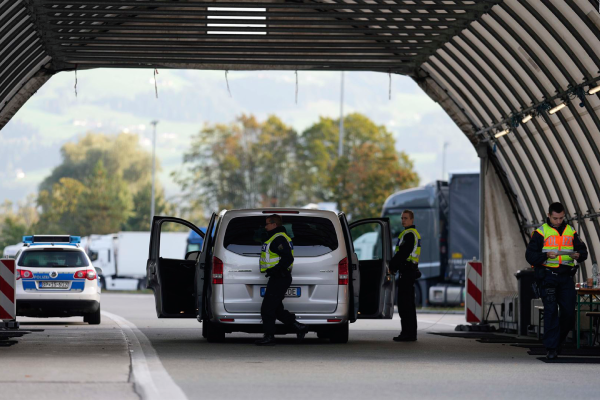Germany will extend temporary border controls beyond the September deadline as it tightens down on irregular immigration, Interior Minister Alexander Dobrindt said on Thursday.
Berlin also intends to transfer more rejected asylum applicants with criminal histories to Taliban-controlled Afghanistan and war-torn Syria, Dobrindt said in a podcast with media source Table Today.
Germany’s conservative Chancellor Friedrich Merz has promised a harsh crackdown on illegal immigration, claiming that this is the only way to combat surging support for the right-wing Alternative for Germany (AfD) party.
A spate of deadly attacks blamed on asylum seekers and other foreign nationals fuelled public fears during the campaign for the February election.
Members of Europe’s Schengen area are allowed to temporarily reintroduce border controls for up to two years in response to serious threats such as terrorism or large-scale unauthorised migration.
Following its election in early May, Merz’s administration further tightened border controls and rejected the majority of asylum claimants, a move that infuriated human rights organisations.
Read Also
Every day, 14,000 federal police officers were stationed at the borders, up from 11,000 previously.
Data from the ministry shows that between May 8 and July 31, 9,254 persons were sent back at German land borders; the majority of these instances came from Afghanistan, followed by Algeria, Eritrea, and Somalia.
Germany’s border with France received the most denials during that time, at over 2,000, followed by Poland, Switzerland, and Austria.
Germany has also twice deported migrants convicted of crimes to Afghanistan, most recently last month when 81 were returned, a decision Dobrindt warned “cannot remain a one-time measure.”
Amnesty International condemned the deportations, describing the situation in Afghanistan as “catastrophic” and claiming that “extrajudicial executions, enforced disappearances, and torture are commonplace.”
Dobrindt also stated that Berlin was seeking to arrange deportation planes to Syria, where an Islamist-led offensive deposed longstanding Syrian tyrant Bashar al-Assad in December.





